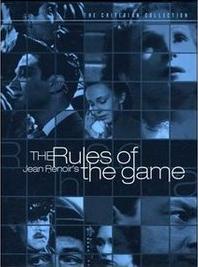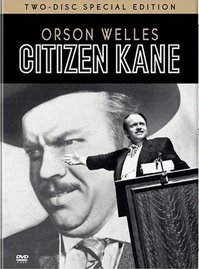The question was asked first on LinkedIn where other answers can be found. My answer was:
“What are we really doing in such circumstances?
Do we:
- "fire" (the heretic),
- "terminate" (the pest),
- "let go" (the slacker),
- "dismiss" (the insubordinate),
- "divorce" (the partner)
- "remove" (the remains)
- "sack" (the quarterback)
- "retire" (the player involuntarily)
- "discharge" (the employee)
- "breakup with (the significant other) or
- "end" (the relationship)?
There are countless ways to describe what's happening, each with very different meanings; but, from the employer's point of view, all with the same legally functional result, right? Not really.
The way you frame the action is critical, especially with the possible legal consequences available, not to mention other ways to get even. And more. The person assigned the dastardly deed may discover that, after all is said and done, that person is also "fired."
I always have advised my fellow co-workers to view their jobs as a way to make a living and to advance their personal education. When they realize there are few employers who will support them in this manner, the good ones will likely stay and the others will expose themselves for what they are. I have always urged them to be using their present job to learn as many transferable skills as possible and to try to prepare for the day when they seek other, if not greener, pastures.
In keeping with this approach, I remember always the profound law written somewhere in our human nature: "Do unto others as you would have them do unto you."
Sounds like this problem has been around for a long time, doesn't it?
Bottom line: As soon as possible, with a severance check, an appointment with an out-placement expert, and a legally sufficient release in hand, I would call the person into my office to meet with me and the HR person. I would speak of what is happening as a "parting of the ways" and a "moving on". Thus I am framing the event as part ot the journeys we are all participants in.
The key is not to argue, but be firm in the presentation. Be kind and professional, dignified but not cold. Most of all, listen to what they person has to say in response. It will clue you in to the possible consequences.”
What do you think?
Please include your comment here or contact me to discuss.
Thanks.
John Darrouzet
for people who want to make better decisions
The Decision-Maker's Path (tm)...
Quick Overview
Blog Archive
-
▼
2008
(132)
-
▼
March
(81)
-
▼
Mar 01
(36)
- How would you want to be approached by someone who...
- What is the best way to fire someone?
- The proverbial silver bullet -- does it exist?
- WHY: When it comes to trust, trust your gut.
- Questions and Answers on the Decision-Maker’s Path™
- What process do you use in decision making?
- How does one find happiness in the workplace?
- According to you, what is Success? Whom do you con...
- Help Me Understand the Need to Be Right
- How should September 11th be memorialized?
- Have you ever had a prophetic dream or vision?
- How do you think?
- Best book to read while on a business trip?
- What makes a movie trailer Great?
- Do you believe in the bell curve of intelligence a...
- How do you know when you are deceiving yourself?
- How much?
- In a world driven by commerce and profit, what doe...
- Role of Spirituality in your Professional Success?
- Are you part of the creative solution or an uncons...
- What is your integrity-based decision making proce...
- When did you know you were committed?
- A personal question: What is one of the most memor...
- How is it possible not to think too much?
- What are the sources of disruption to your ideal p...
- What makes you Unique? And, after all, what makes ...
- Why is change regarded as a 'soft' area?
- What do you consider are the key components/tools/...
- How can I raise a total of 200.000.000 euro for in...
- If "legally" given a choice...
- What determined your career path?
- What is the role of "spirituality" in your work life?
- Strategic planning (for small businesses)
- Why do organizations need managers AND leaders?
- If better leadership produces better results why d...
- How do you effectively integrate strategic and tac...
-
▼
Mar 01
(36)
-
▼
March
(81)
Discovering the centers ...

... of embedded insights
MOVIES FOR DECISION-MAKERS
Below are the cover images of movies for decision-makers, with clues to better decision-making.
Romero: the significant decision
"I know men and I tell you that Jesus Christ is no mere man. Between Him and every other person in the world there is no possible term of comparison. Alexander, Caesar, Charlemagne, and I have founded empires. But on what did we rest the creation of our genius? Upon force. Jesus Christ founded His empire upon love; and at this hour millions of men would die for Him."
--Napoleon
Decision-making: like climbing ...

a spiral staircase...one step at a time.
John Darrouzet
Special Counsel for Decision-Makers
Links
Followers
Subscribe To
********************* Advertising Disclaimer *********************
NOTE WELL:
Allowing the placement of the ads set out below should not be interpreted to constitute an endorsement or recommendation in any way by Special Counsel for Decision-Making or John Darrouzet of the content or programs referred to therein by the advertisers.
*****************************************************************************************************************************************
Allowing the placement of the ads set out below should not be interpreted to constitute an endorsement or recommendation in any way by Special Counsel for Decision-Making or John Darrouzet of the content or programs referred to therein by the advertisers.
*****************************************************************************************************************************************
*************************** Legal Notice **************************
Decision-Maker's Path (tm) trademark by, and blog content copyright © 2008, John Darrouzet. All rights reserved.

















































No comments:
Post a Comment